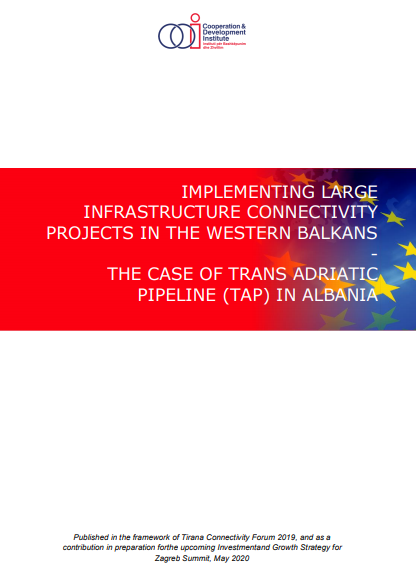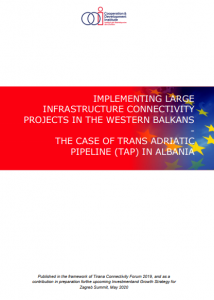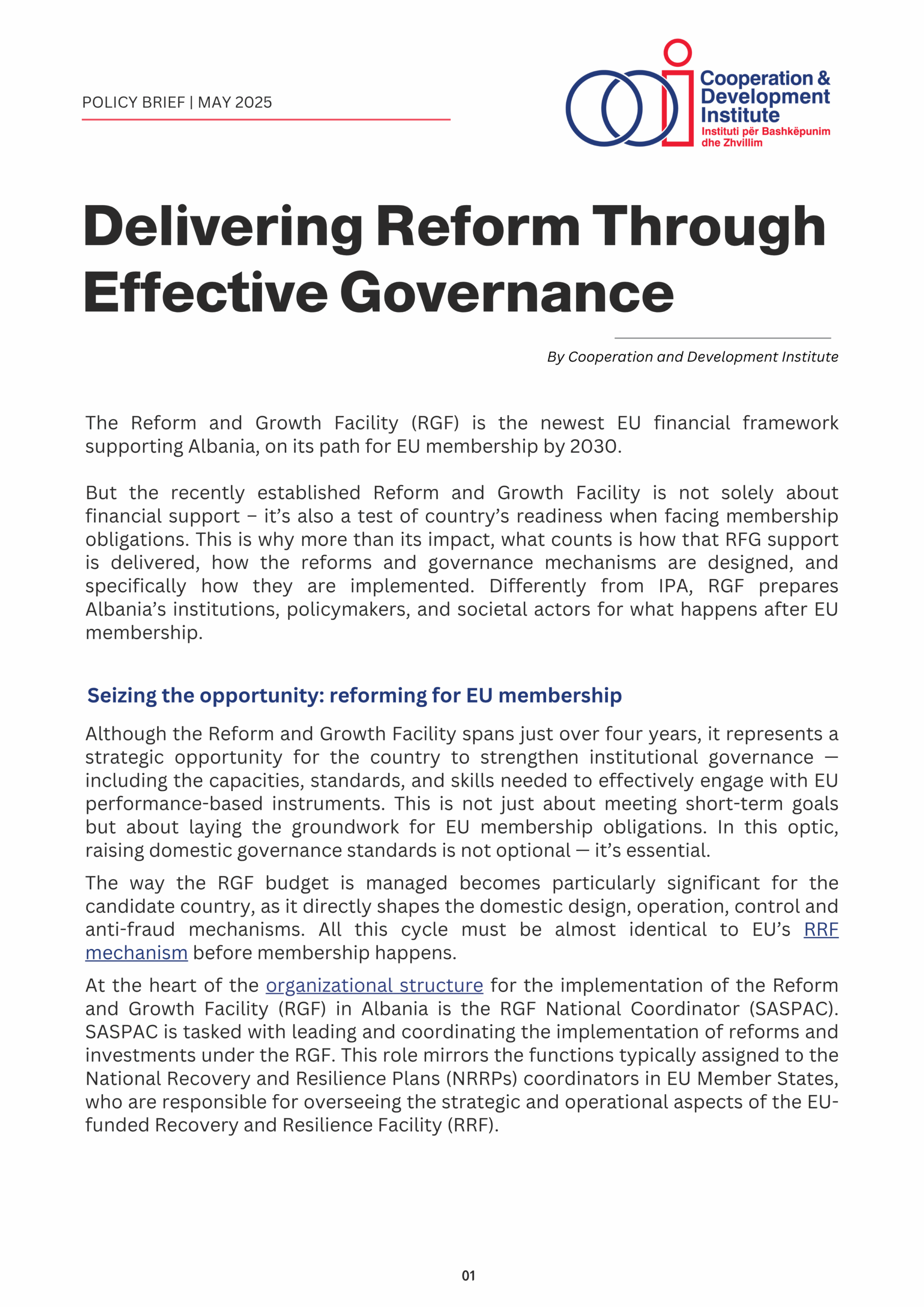Implementing Large Infrastructure Connectivity Projects in the Western Balkans – The Case of Trans Adriatic Pipeline (TAP) in Albania

Frontloading Conditionality: The EU Council Track Record Table for Albania
April 21, 2020
Connectivity Agenda and Structural Weaknesses of EU Candidate Countries
April 29, 2020To be implemented successfully in the Western Balkans countries (WB6), Large Regional Infrastructure Projects (LIPs) should be self-contained, backed-up politically, and with minimum interference from public authorities. Being self-contained involves having in-house the technical expertise and the initial financing to cover the planning phase, and possessing a granular understanding of the legal and institutional context of the host country. Political back-up – international and local – is crucial to successfully navigate the international geo-political scene, to by-pass the challenges posed by the incomplete legal and procedural framework during the construction and operations phase, and to secure the necessary leverage for efficiently pressuring all the levels of national and local administration that deal with LIPs.
We believe the study brings an innovative perspective on the local institution governance, or the local “institutional black box” that directly impacts an LIP cycle. This research brings those two elements to the attention of policy makers and International Finance Institutions (IFIs).
This report also aims to provide a detailed insight on the interaction dynamics, benefits and risk distribution between the host country and the IFI, bilateral donor or private investor on all the project life-cycle from design to post-construction. Wherever relevant, comparisons have been drawn with Connectivity Agenda (CA) projects. Finally, we have planned the publication of this report in the view of the ongoing preparation of the Growth and Investment Plan for the Western Balkans. We believe this document provides original, context-based and applicable insights that can eventually contribute in the planning, implementation and the operation phases of the Connectivity Agenda projects.





National Parliament and the Reform Agenda 2024-2027
Read more